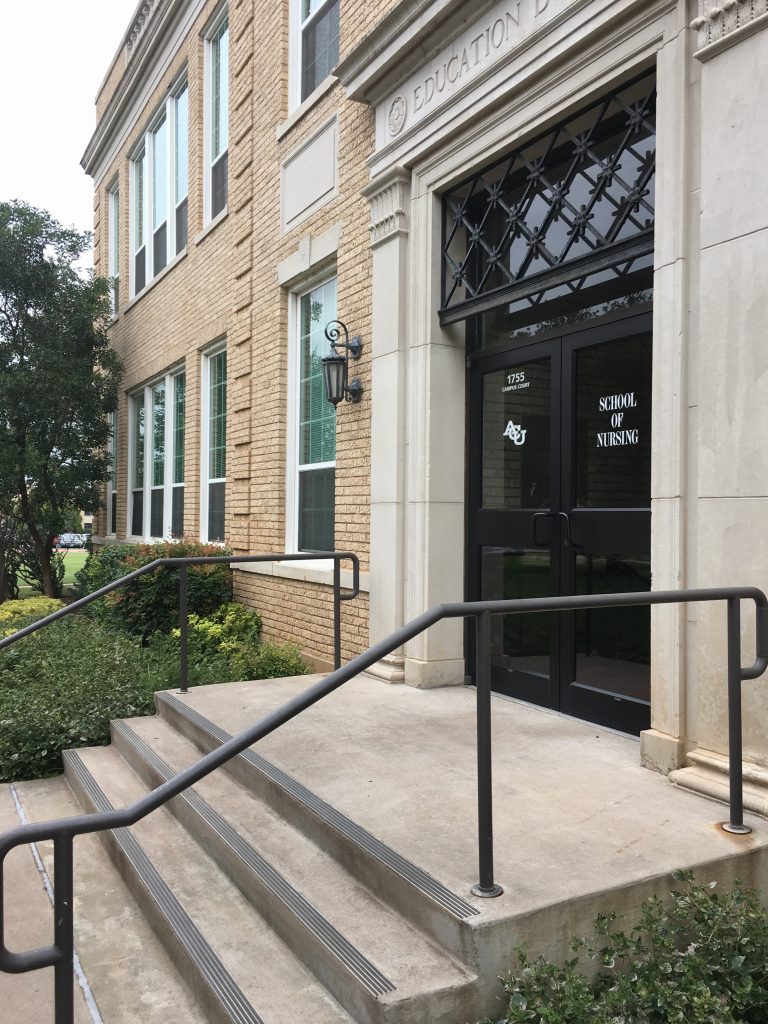COVID-19 has forced the School of Nursing to adapt classes and clinicals to face the challenges of the pandemic.
In a typical year, the state board requires nursing students to have direct patient contact. The law set by the state legislature usually states that no more than 50% of clinicals can be simulated, said Dr. Marcia Straughn, dean of the School of Nursing. However, as long as the United States remains in a state of emergency, the governor has issued a waiver to these requirements.
“That doesn’t relieve us of the responsibility to provide face to face clinicals,” Straughn said. “We have been very blessed that our primary clinical site for acute care here in Abilene, Hendrick Medical Center and its campuses, has really prioritized trying to keep students in the facility and keep them safe at the same time.”
Students are equipped with ACU purple PPE (personal protective equipment) backpacks with COVID-19 specific gear such as an N95 mask, medical-grade surgical masks, eye shields, goggles, and other protective equipment to keep students and patients safe during clinicals.
Kaitlyn Ashley, senior nursing student, said the safety measures extend beyond the PPE backpacks, as nursing students in particular are tasked with being leaders in COVID-19 safety precautions.
“Throughout all this, our professors have been encouraging us to encourage our friends to wear a mask, wash our hands, stay away and stay quarantined,” Ashley said. “Seeing them impact our community through us has been a huge thing for me.”
When ACU went online in the spring, Straughn said the program relied on online clinical programs. Now that students are back on campus, they have the opportunity for in-person clinical experiences.
“What the state board says we need to do is focus on our students meeting outcomes for the program,” Straughn said. “We need to see if they meet outcomes for courses, so really that’s what we focused on when we had to go remote.”
Although these are interesting times in the medical community, the mission of ACU nursing students to serve others, as Straughn said, remains more intact than ever.
“One of the biggest appeals to being in nursing is that there is such a direct, measurable, experiential connection to serving others and doing good works,” Straughn said. “We literally are acting as the hands and feet of Jesus.”


